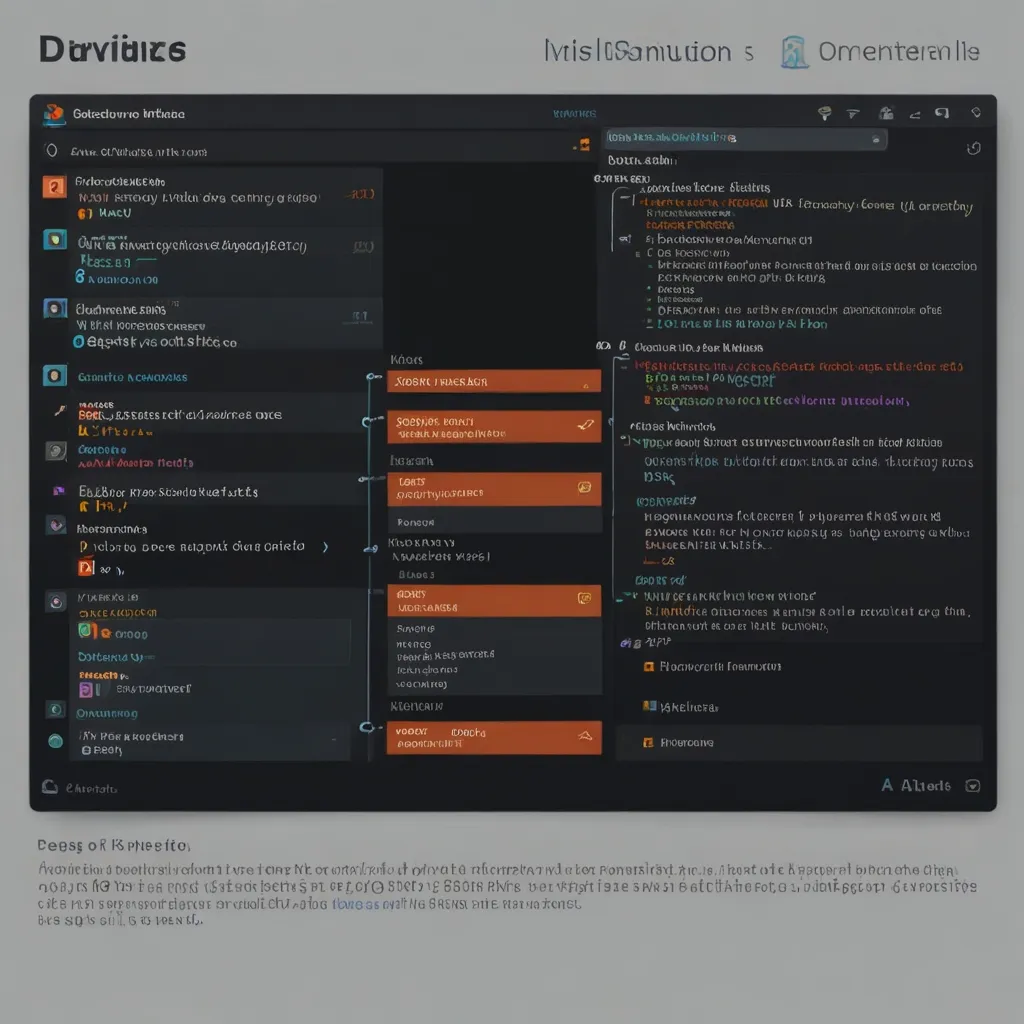Error handling is a critical aspect of software development that ensures our applications gracefully manage unexpected situations. As a seasoned developer, I’ve encountered numerous approaches to error handling across various programming languages. In this article, I’ll share five practical approaches that have proven effective in modern programming paradigms.
Try-Catch Blocks
The try-catch mechanism is a fundamental error handling technique found in many programming languages. It allows us to encapsulate potentially error-prone code within a try block and specify how to handle exceptions in the corresponding catch block.
In Java, for instance, we can use try-catch blocks like this:
try {
// Code that might throw an exception
int result = 10 / 0;
} catch (ArithmeticException e) {
System.out.println("Error: Division by zero");
} finally {
System.out.println("This block always executes");
}
The try block contains the code that might throw an exception. If an exception occurs, the program flow immediately transfers to the catch block, where we can handle the error gracefully. The finally block, if present, always executes, regardless of whether an exception occurred or not.
Python offers a similar construct:
try:
# Code that might raise an exception
result = 10 / 0
except ZeroDivisionError:
print("Error: Division by zero")
finally:
print("This block always executes")
The try-catch approach is particularly useful when we can anticipate specific types of errors and want to handle them differently. It allows us to maintain the normal flow of our program even when errors occur.
Error Objects and Custom Exceptions
Many modern languages support the creation of custom error objects or exceptions. This approach allows us to define specific error types for our application, making error handling more precise and informative.
In JavaScript, we can create custom error objects:
class ValidationError extends Error {
constructor(message) {
super(message);
this.name = "ValidationError";
}
}
function validateUser(user) {
if (!user.name) {
throw new ValidationError("User name is required");
}
// Other validation checks...
}
try {
validateUser({});
} catch (error) {
if (error instanceof ValidationError) {
console.log("Validation failed:", error.message);
} else {
console.log("An unexpected error occurred:", error);
}
}
In this example, we’ve created a custom ValidationError class. We can throw this error when specific validation conditions aren’t met, allowing us to handle it differently from other types of errors.
Similarly, in Python, we can define custom exceptions:
class ValidationError(Exception):
pass
def validate_user(user):
if not user.get('name'):
raise ValidationError("User name is required")
# Other validation checks...
try:
validate_user({})
except ValidationError as e:
print(f"Validation failed: {str(e)}")
except Exception as e:
print(f"An unexpected error occurred: {str(e)}")
Custom exceptions enhance the readability and maintainability of our code by providing more context about the nature of errors.
Result Types
Some modern languages, particularly those with strong type systems, use Result types for error handling. This approach encapsulates the outcome of an operation, which can be either a success value or an error.
Rust, for example, has a built-in Result type:
use std::fs::File;
use std::io::Read;
fn read_file_contents(path: &str) -> Result<String, std::io::Error> {
let mut file = File::open(path)?;
let mut contents = String::new();
file.read_to_string(&mut contents)?;
Ok(contents)
}
fn main() {
match read_file_contents("example.txt") {
Ok(contents) => println!("File contents: {}", contents),
Err(error) => println!("Error reading file: {}", error),
}
}
In this Rust example, the read_file_contents function returns a Result that can either be Ok(contents) if the operation succeeds, or Err(error) if it fails. We use the ? operator for concise error propagation within the function.
While not all languages have built-in Result types, we can implement similar patterns. In TypeScript, for instance:
type Result<T, E> = { ok: true; value: T } | { ok: false; error: E };
function divide(a: number, b: number): Result<number, string> {
if (b === 0) {
return { ok: false, error: "Division by zero" };
}
return { ok: true, value: a / b };
}
const result = divide(10, 2);
if (result.ok) {
console.log("Result:", result.value);
} else {
console.log("Error:", result.error);
}
This approach encourages explicit error handling and makes it clear when a function can fail, improving code reliability.
Monads for Error Handling
Monads are a concept from functional programming that can be applied to error handling. While they might seem complex at first, they provide a powerful way to chain operations that might fail.
In Haskell, the Maybe monad is often used for this purpose:
import Data.Maybe
safeDivide :: Int -> Int -> Maybe Int
safeDivide _ 0 = Nothing
safeDivide a b = Just (a `div` b)
safeRoot :: Int -> Maybe Double
safeRoot n
| n < 0 = Nothing
| otherwise = Just (sqrt (fromIntegral n))
computeValue :: Int -> Int -> Maybe Double
computeValue a b = do
divided <- safeDivide a b
safeRoot divided
main :: IO ()
main = do
let result = computeValue 16 4
case result of
Just value -> putStrLn $ "Result: " ++ show value
Nothing -> putStrLn "Computation failed"
In this example, safeDivide and safeRoot are functions that might fail. We use the Maybe monad to chain these operations in computeValue. If any step fails (returns Nothing), the entire computation fails.
While not all languages have built-in support for monads, we can implement similar patterns. In Python, for instance, we could create a Maybe class:
from typing import Generic, TypeVar, Callable
T = TypeVar('T')
U = TypeVar('U')
class Maybe(Generic[T]):
def __init__(self, value: T | None):
self.value = value
def bind(self, func: Callable[[T], 'Maybe[U]']) -> 'Maybe[U]':
if self.value is None:
return Maybe(None)
return func(self.value)
def map(self, func: Callable[[T], U]) -> 'Maybe[U]':
if self.value is None:
return Maybe(None)
return Maybe(func(self.value))
def safe_divide(a: int, b: int) -> Maybe[int]:
return Maybe(a // b if b != 0 else None)
def safe_root(n: int) -> Maybe[float]:
return Maybe(n ** 0.5 if n >= 0 else None)
def compute_value(a: int, b: int) -> Maybe[float]:
return (Maybe(a)
.bind(lambda x: safe_divide(x, b))
.bind(safe_root))
result = compute_value(16, 4)
if result.value is not None:
print(f"Result: {result.value}")
else:
print("Computation failed")
This approach allows us to chain potentially failing operations in a clean and readable manner.
Error Codes and Option Types
Some languages and coding styles prefer using error codes or option types for error handling. This approach is often seen in languages like C, where functions return an error code to indicate success or failure.
Here’s an example in C:
#include <stdio.h>
#include <stdlib.h>
#define SUCCESS 0
#define ERROR_INVALID_INPUT 1
#define ERROR_DIVIDE_BY_ZERO 2
typedef struct {
int error_code;
double result;
} DivisionResult;
DivisionResult divide(double a, double b) {
DivisionResult result;
if (b == 0) {
result.error_code = ERROR_DIVIDE_BY_ZERO;
result.result = 0;
} else {
result.error_code = SUCCESS;
result.result = a / b;
}
return result;
}
int main() {
DivisionResult result = divide(10, 2);
if (result.error_code == SUCCESS) {
printf("Result: %.2f\n", result.result);
} else if (result.error_code == ERROR_DIVIDE_BY_ZERO) {
printf("Error: Division by zero\n");
} else {
printf("Unknown error occurred\n");
}
return 0;
}
In this approach, we return a struct that contains both the result and an error code. The caller can then check the error code to determine if the operation was successful.
Some modern languages provide Option or Optional types, which are similar to the Maybe monad but typically used for simpler cases. In Swift, for example:
func divide(_ a: Double, by b: Double) -> Double? {
guard b != 0 else { return nil }
return a / b
}
if let result = divide(10, by: 2) {
print("Result: \(result)")
} else {
print("Division failed")
}
Here, the divide function returns an optional Double. If the division is successful, it returns the result wrapped in an optional. If it fails (due to division by zero), it returns nil.
These approaches encourage checking for errors at each step, making it less likely that errors will be overlooked.
In conclusion, error handling is a crucial aspect of writing robust and reliable software. The approach we choose depends on the language we’re using, the complexity of our application, and our specific requirements. Try-catch blocks offer a straightforward way to handle exceptions, while custom error objects provide more detailed error information. Result types and monads offer more structured approaches to error handling, particularly useful in functional programming paradigms. Finally, error codes and option types provide simple, explicit ways to indicate and check for errors.
As developers, it’s important to understand these different approaches and choose the one that best fits our needs. Effective error handling not only prevents our applications from crashing but also improves the user experience by providing meaningful feedback when things go wrong. Remember, good error handling is not just about catching errors – it’s about anticipating potential issues and designing our code to handle them gracefully.






